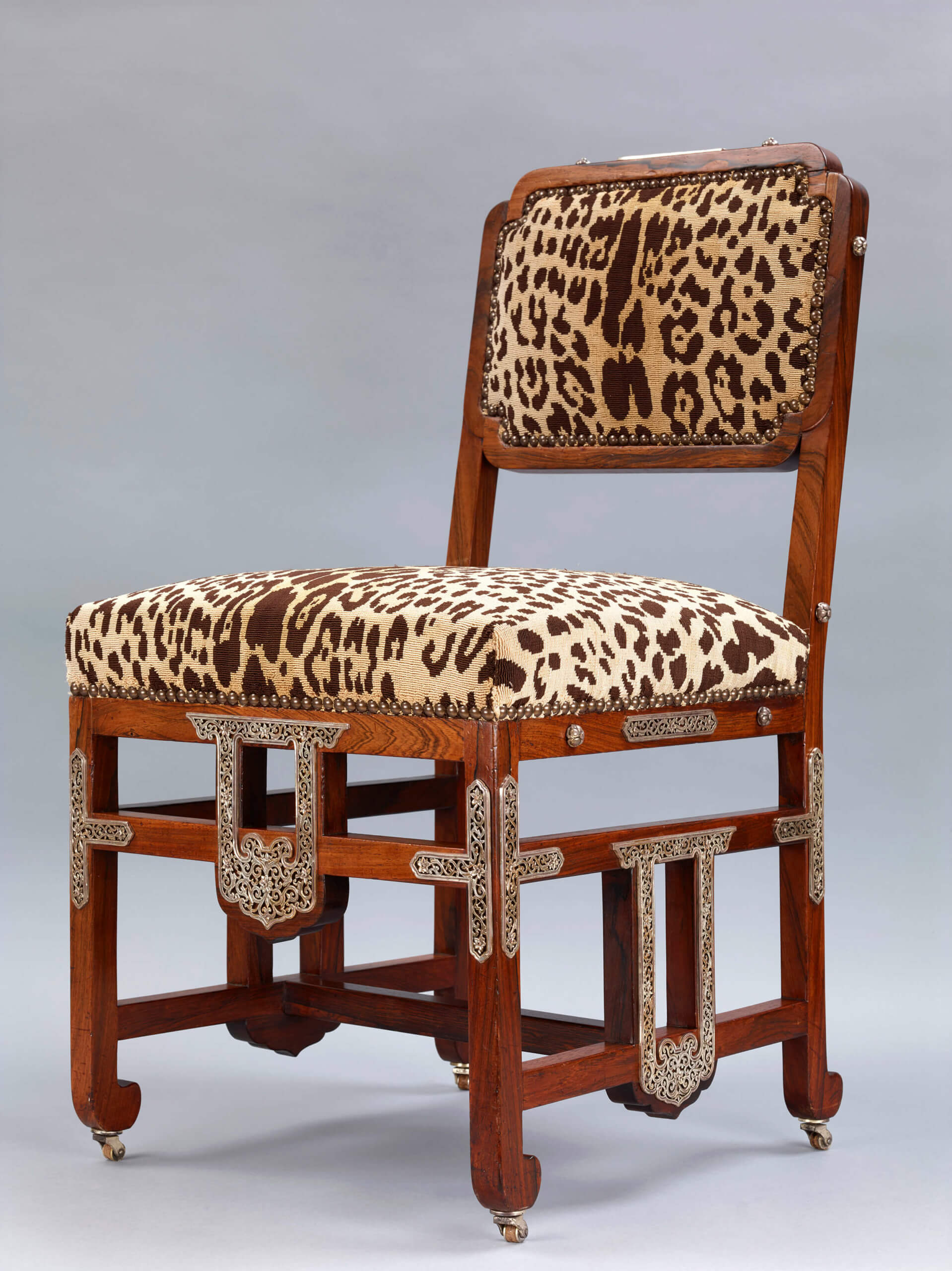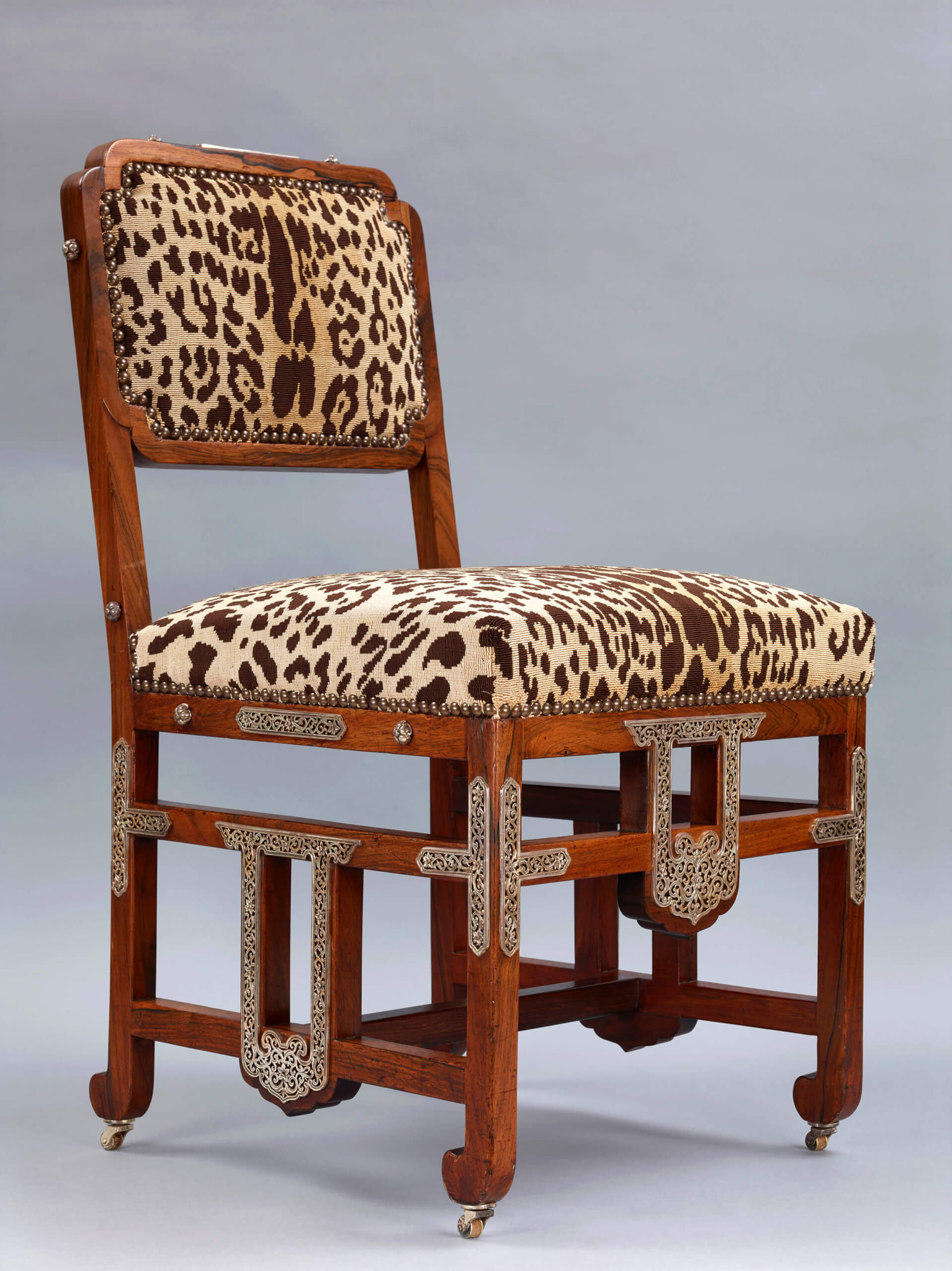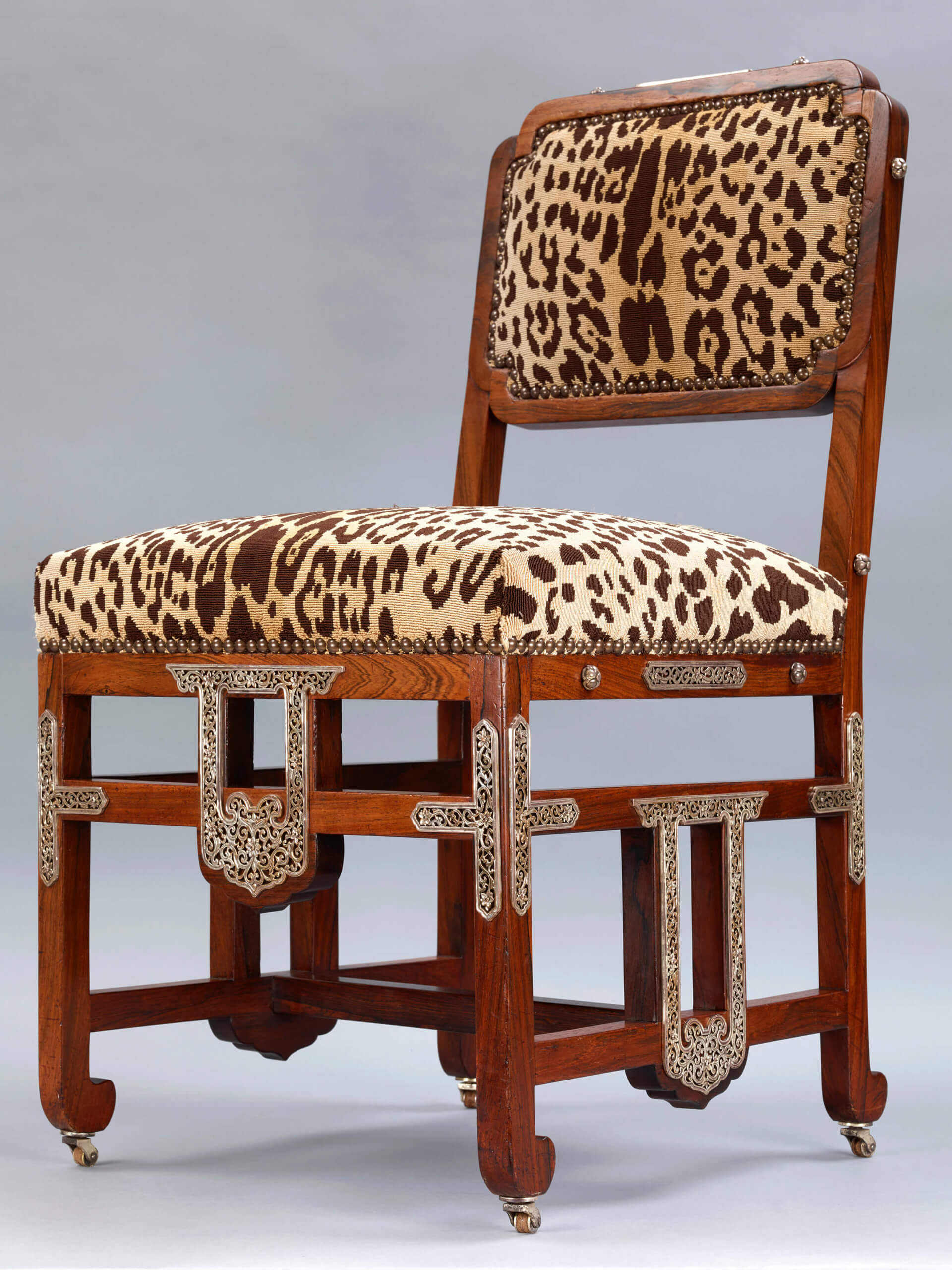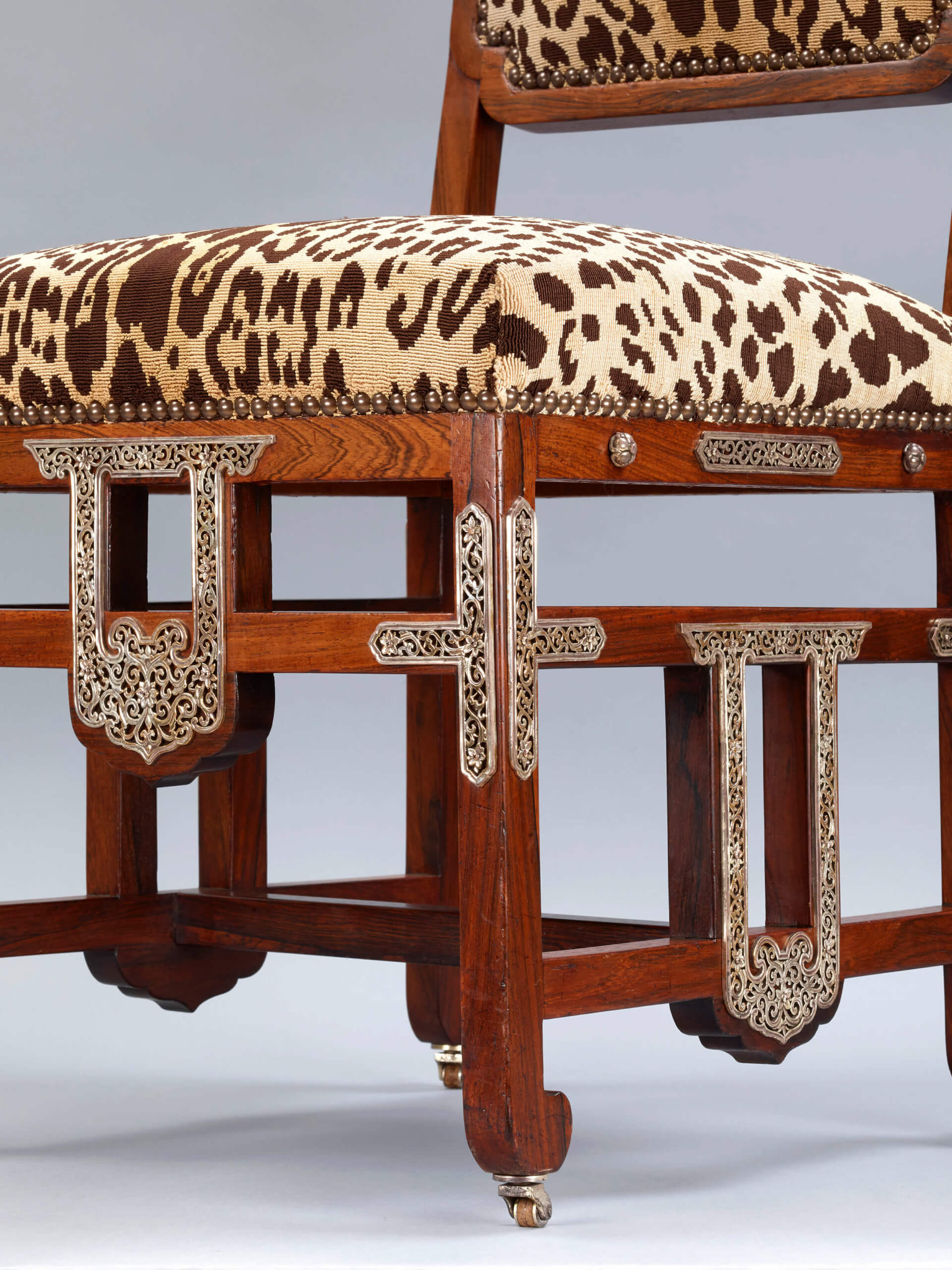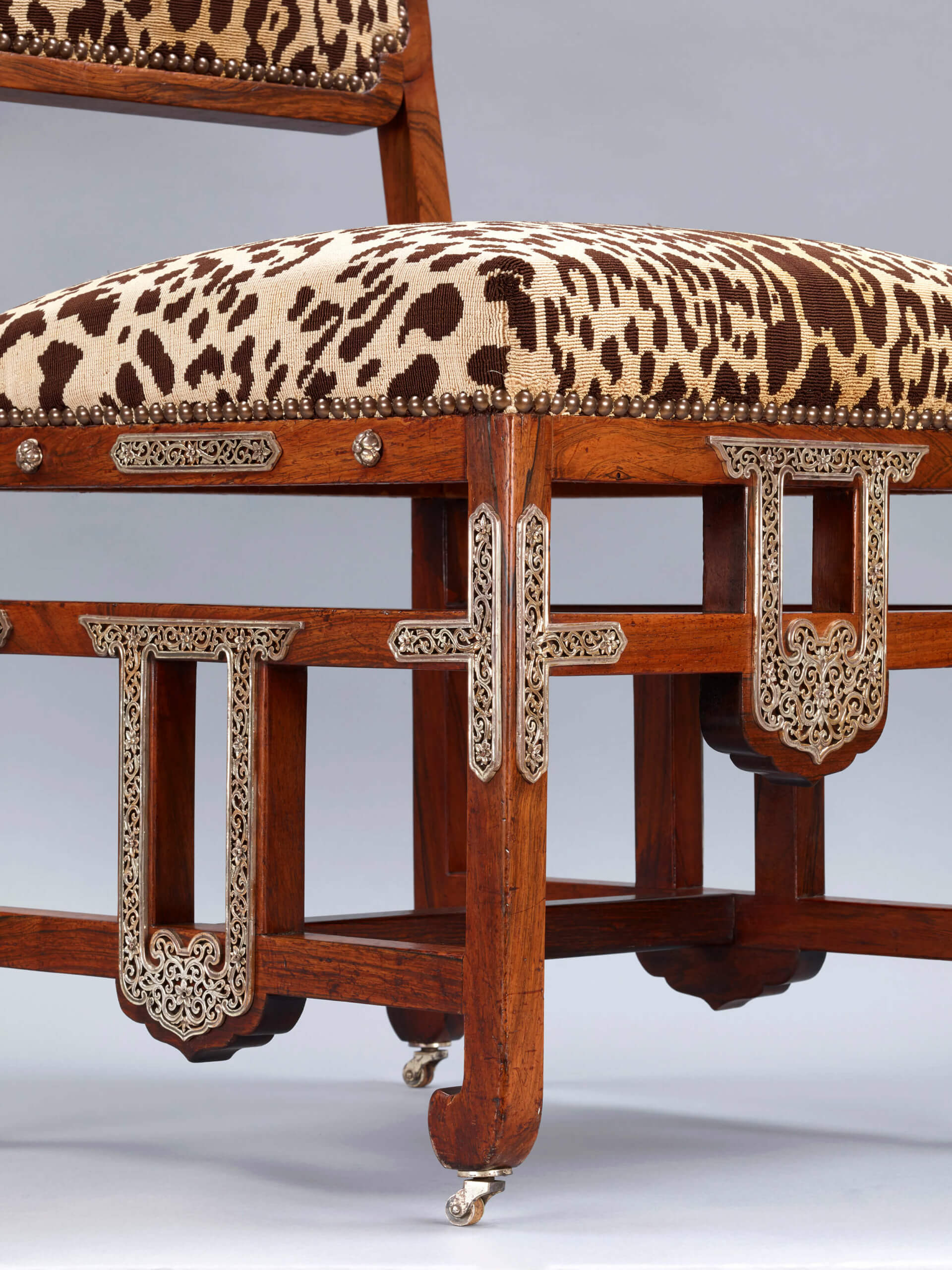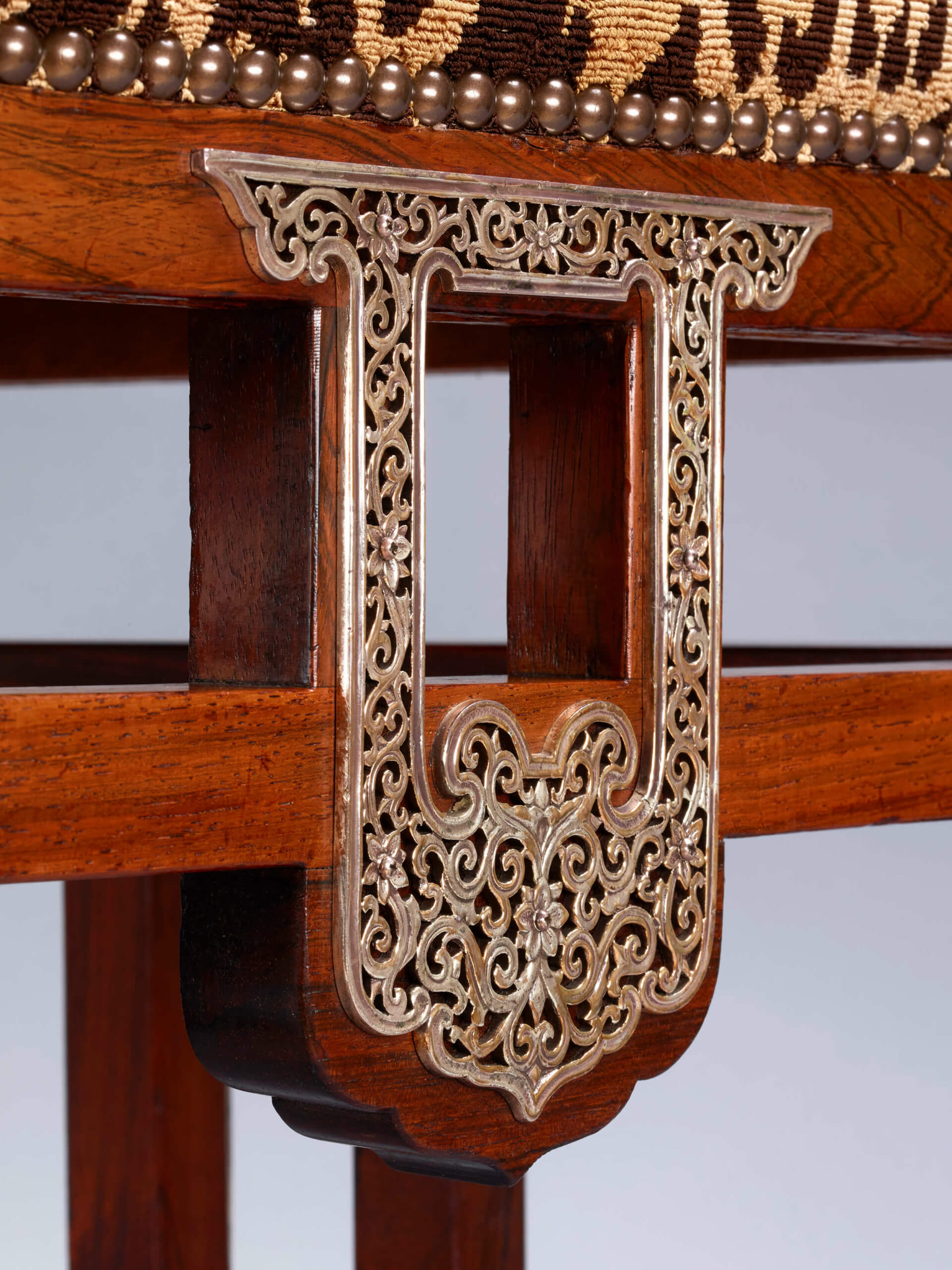

Rio rosewood; silvered bronze.
H. 86 cm. (34 in.); W. 46.5 cm. (18 ½ in.); D. 46.5 cm. (18 ½ in.).
PROVENANCE: private collection.
COMPARATIVE LITERATURE: Catalogue des meubles d’art, etc, provenant de la succession de feu M. Edouard Lièvre, Paris, Hôtel Drouot, room nos. 8 & 9, Messrs. L. Lémon and P. Chevallier, 21st March 1887.
Edouard Lièvre was one of the first artists to admire “Le Musée chinois de M. de Montigny”, which gathered the collection “of antique art and rare curiosities of China” brought back by this old French consul in Shanghai, which was acquired by the Louvre in the 1855 Paris Exposition (Exposition universelle). The presence of this collection at the Louvre certainly had a particularly strong impact in the imagination of artists and offered them a glimpse of new possibilities.
At a time when the debate of ideas around the union of art and industry was at its peak, Edouard Lièvre decided to make his personal contribution by creating his own designs. Based on his encyclopedic knowledge of European and foreign styles, he succeeded in resolving the Gordian knot in which were subjected the designers of the 19th century, that was the adequacy between the form of an object, its function and its decoration. Lièvre brought together a small team of skilled collaborators who, working from his designs and under his supervision, produced luxury furniture, bronzes, ceramics and textiles inspired from historical European styles (Renaissance, Louis XVI), blended with Oriental (India, Persia) and Far-Eastern influences (China, Japan). While he remained faithful to the main lines characteristic of each ideal, he managed to create variation in the system of ornamentation and to create pieces with a new mark. Weary of forgeries and the lack of originality of most of the work produced at the time, enlightened amateurs (Sarah Bernhardt, Edouard Detaille, Simon Lazard, Princess Mathilde, etc.), and also bronze and furniture manufacturers (Leprince, Roux, Sormani, etc.), as well as the most prestigious decorating houses (Allard, Bing, L’Escalier de Cristal), made no mistake, not only during his lifetime, but also after his death.
